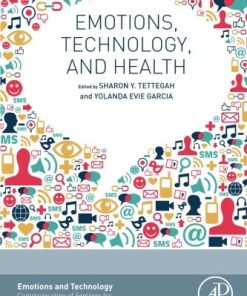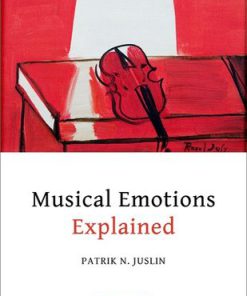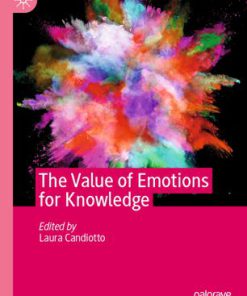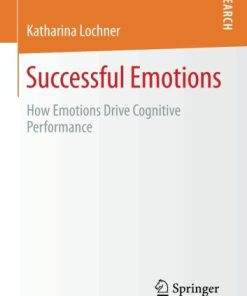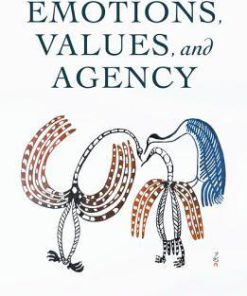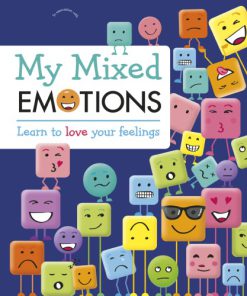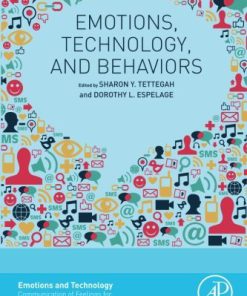Virtuous Emotions 1st edition by Kristjan Kristjansson ISBN 0192537555 9780192537553
$50.00 Original price was: $50.00.$25.00Current price is: $25.00.
Virtuous Emotions 1st edition by Kristjan Kristjansson – Ebook PDF Instant Download/Delivery: 0192537555, 978- 0192537553
Full download Virtuous Emotions 1st Edition after payment

Product details:
ISBN 10: 0192537555
ISBN 13: 978-0192537553
Author: Kristjan Kristjansson
Virtuous Emotions 1st Table of contents:
1. Introduction: Developing an Aristotelian Account of Virtuous Emotions
- 1.1 Why Aristotle?
Justification for using Aristotle’s framework to understand emotions, highlighting his foundational role in ethics and psychology. - 1.2 What an Emotion Is: A Componential View
A theoretical overview of emotions, breaking them down into components such as cognitive appraisals, physiological responses, and behavioral tendencies. - 1.3 Character and Virtue: Where Do Emotions Fit In?
Exploring the relationship between emotions, moral character, and virtue in Aristotelian ethics. - 1.4 ‘Virtuous Emotions’: What Does It Mean?
Clarifying the concept of “virtuous emotions,” explaining how emotions themselves can be cultivated to align with virtue. - 1.5 Emotion Education: The Preliminaries
Introduction to the idea that emotions can be educated and developed, with an overview of how this fits within a broader ethical framework. - 1.6 A Roadmap of Subsequent Chapters
Overview of the structure of the book, outlining the themes and goals of each chapter.
2. Emotions and Moral Value
- 2.1 Emotions and Value Epistemology
Examining how emotions relate to the epistemology of moral values—how emotions can reveal or mislead us about what is good or virtuous. - 2.2 Four Competing Epistemologies
A discussion of different philosophical perspectives on the relationship between emotions and knowledge of moral values. - 2.3 Complexities regarding Moral Motivation and a Critique of Soft Sentimentalism
Analyzing debates on moral motivation and critiquing “soft sentimentalism” (the idea that emotions are central to moral knowledge but not the sole guide). - 2.4 Hard Sentimentalism Revisited
Revisiting the idea that emotions are essential to moral reasoning, with a focus on its criticisms and limitations. - 2.5 Implications for Emotion Education
Exploring how these philosophical debates affect approaches to educating emotions, particularly in moral contexts.
3. Gratitude
- 3.1 Introduction
Introduction to gratitude as an emotion and its moral and philosophical significance. - 3.2 Current Discourses on Gratitude
A survey of current philosophical and psychological discussions on gratitude. - 3.3 Putting the Aristotelian Pieces Together
Constructing an Aristotelian view of gratitude, integrating it into the broader framework of virtue ethics. - 3.4 Reappraising Aristotle on Megalopsychia and Gratitude
Reconsidering Aristotle’s treatment of magnanimity (megalopsychia) in relation to gratitude and virtue. - 3.5 Gratitude and Poetic Justice
Connecting gratitude with poetic justice (the idea that individuals receive their deserved outcomes), analyzing how gratitude is related to moral justice.
4. Pity
- 4.1 Introduction
Introducing pity and its moral implications. - 4.2 Aristotle on the Desert-Based Emotions
Exploring Aristotle’s view on emotions like pity that are linked to perceptions of desert or deservedness. - 4.3 The Conceptual Parish of Fellow-Feelings
Investigating the idea that pity is part of a broader category of emotions tied to shared human experiences (fellow-feelings). - 4.4 Possible Defences of Pity
Examining arguments for and against pity as a virtuous emotion. - 4.5 Concluding Remarks
Summarizing the key points and implications for virtue theory.
5. Shame
- 5.1 Introduction
Introducing the emotion of shame and its role in moral development. - 5.2 Four Discourses on Shame: The Mainstream Interpretation
Reviewing the common interpretations of shame in contemporary ethical thought. - 5.3 Critiquing the Canon: The Heterodox Interpretation
Critically engaging with alternative or lesser-known views of shame. - 5.4 Whence Those Contrasting Interpretations? Conceptual Analyses across Disciplines
Examining how different disciplines (e.g., psychology, philosophy, sociology) treat shame, and why their interpretations differ. - 5.5 Concluding Remarks
Wrapping up the discussion on shame and its moral significance.
6. Jealousy
- 6.1 Introduction
An overview of jealousy as a complex and often morally ambiguous emotion. - 6.2 Philosophical and Historical Background
Tracing the treatment of jealousy in classical philosophy and its moral implications. - 6.3 Recent Work on Jealousy in Psychology
A look at contemporary psychological theories about jealousy and its origins. - 6.4 Recent Work on Jealousy in Philosophy
Reviewing modern philosophical discussions on jealousy, including ethical concerns and the role it plays in moral life. - 6.5 Concluding Remarks
Summarizing the main points and drawing implications for virtue ethics.
7. Grief
- 7.1 Introduction
Introducing grief as an emotion tied to loss and mourning, with moral and emotional implications. - 7.2 What Grief Is
Defining grief, exploring its nature and what makes it a distinct emotional experience. - 7.3 The Rationality of Grief
Examining whether grief can be rational or if it’s a purely emotional reaction. - 7.4 A Moral Justification of Grief
Arguing that grief can have moral value and a rightful place in a well-lived life. - 7.5 Concluding Remarks
Summarizing the ethical importance of grief and its role in the development of virtuous emotions.
8. Awe
- 8.1 Introduction
Introducing awe as a powerful emotion that often leads to a sense of transcendence or humility. - 8.2 The Concept of Awe
Defining awe and its philosophical significance. - 8.3 Towards an Aristotelian Justification
Exploring how awe fits into an Aristotelian framework of virtue and human flourishing. - 8.4 A Presumed Link to Humility—and Is It Fatal to an Aristotelian Analysis of Awe?
Investigating the relationship between awe and humility and whether this complicates its fit in Aristotelian ethics. - 8.5 Concluding Remarks
Wrapping up the discussion on awe and its moral value.
9. Educating Emotions
- 9.1 Introduction
A discussion on the need and methods for educating emotions to promote virtue and moral development. - 9.2 Concepts and Categories
Defining the categories and concepts involved in emotional education. - 9.3 The Seven Discourses Analysed
Analyzing the seven emotions discussed in previous chapters (gratitude, pity, shame, jealousy, grief, awe) and their educational implications. - 9.4 Strategies of Emotion Education
Practical strategies for fostering virtuous emotions through education. - 9.5 Concluding Remarks
Summarizing key insights on emotion education and its importance.
10. Conclusions and Afterthoughts
- 10.1 Some Afterthoughts on the Virtuousness of Emotions
Reflecting on the key argument that emotions can be virtuous and cultivated in moral development. - 10.2 Aristotelian Naturalism: Some Methodological Afterthoughts
Discussing the methodological challenges of applying Aristotelian naturalism to emotions. - 10.3 Further Afterthoughts on the Methodological Complexities of Crossover Work on Virtuous Emotions
Addressing the challenges of interdisciplinary work on emotions and virtue. - 10.4 Some Afterthoughts on the Development and Education of Emotions
Further reflections on the process of developing and educating emotions for moral and virtuous growth. - 10.5 Very Final Words
Concluding remarks that tie together the themes of the book, reflecting on the broader implications for moral philosophy and emotional development.
People also search for Virtuous Emotions 1st :
virtuous examples
3 types of virtues
list of virtuous traits
emotional virtue by sarah swafford
what are the five constant virtues
Tags:
Kristjan Kristjansson,Virtuous,Emotions 1st
You may also like…
Politics & Philosophy - Social Sciences
Arts - Music
Musical Emotions Explained 1st Edition by Patrik N Juslin ISBN 9780198753421 019875342X
Fiction
Uncategorized
Politics & Philosophy - Social Sciences
Successful Emotions How Emotions Drive Cognitive Performance 1st Edition Katharina Lochner
Politics & Philosophy - Anthropology
Emotions Value and Agency 1st edition by Christine Tappolet 0191089427 9780191089428
Children's Books - Growing Up & Facts of Life
Politics & Philosophy - Social Sciences
Psychology - Clinical Psychology




